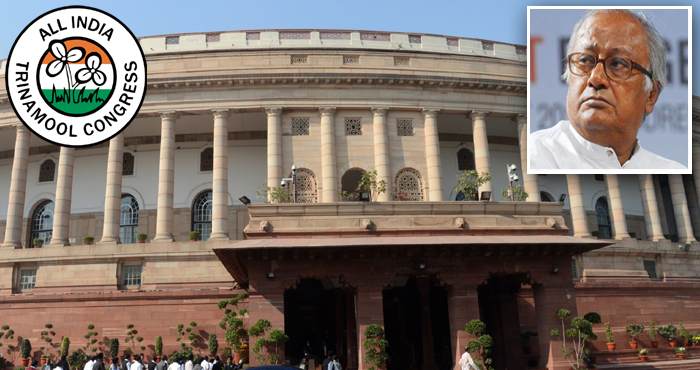July 26, 2019
Saugata Roy speaks on the The Companies (Amendment) Bill, 2019

FULL TRANSCRIPT
Sir, I rise to speak on The Companies (Amendment) Bill,2019. I am happy to speak on this Bill because I was here in the House when the young Sachin Pilot had introduced the Comprehensive Company Law. That was a very effective law in the matter of investor protection and corporate governance. It also introduced the concept of corporate social responsibility and he had included it in the law.
But, the unfortunate part is that after the present Government came to power in 2014, they made repeated amendments. There are 22 amendments in 2015, then there were a large number of amendments in 2017, and again the present Bill has come with 36 clauses including quite a number of Amendments. It seems that the companies are not satisfied with any laws you bring so they bring pressure on the Government to change the law. The Government committee led by Injeti Srinivas, Corporate Affairs Secretary submitted a report. The present Bill is an outcome of that report.
But it defies logic as to what the urgency was that led to the two ordinances being brought. I could find no urgency. It is not that suddenly the ‘ease of doing business’ will become better. So, this ‘ordinance raj’, this ruling by ordinance, is something we all oppose. I am opposed to the Government’s policy on many matters like selling the family silver – getting Rs 1,05,000 by selling the CPSUs, divesting from Air India, etc. I am against the policy of the Government which has led to the NPA amount ballooning to Rs 11 lakh crore, an amount that will never be fully recovered.
But when the Government comes in for small cosmetic changes, I have no objection to the Bill. Let me state, Sir, that ‘corporate’ has become a bad word in the country. Why? We first had Satyam Computers which inflated the values of their share values; they involved a famous chartered accountant company to inflate the share values. Then came the Ponzi companies – Saradha and Rose Valley. The Government did not look into it.
I very often ask, what is the organisation, SFIO, or Serious Fraud Investigation Office, under the Corporate Affairs Ministry. What was the SFIO doing when all the Ponzi companies planned and started doing these kinds of businesses? They did nothing. Later we found out in the Finance Committee that they did take up some action, but it was very late.
Thirdly, at the time of demonetisation, the shell companies planned up in a big way. Monies were transferred and black money became legitimate white money through these shell companies. So far, not enough has been done to do away with this menace of shell companies. Only one step has been taken. That step is that the Registrar of Companies can visit the office and if there is no existence of an office, may close that company.
That is the simple power given to the Registrar of Companies. Though, if you are aware, Sir, we have an office of Registrar of Companies in Kolkata’s Nizam Palace where people know that money has to be paid to get a company registrered. It’s like a Motor Vehicles Office. The Registrar of Companies offices are all dens of corruption. Nothing has been done to remove corruption from these places.
But as I said, the Bill has certain good points as in its essence, it seeks to bring greater compliance by declogging of the special courts, declogging of the National Company Law Tribunal (NCLT) and effective enforcement. At present there are around 60 per cent of the 40,000 odd cases pending in the courts, attached to sections dealing with procedural lapses, that are proposed to be shifted to an in-house adjudication mechanism, thereby incentivising compliance by corporates.
As a result of the Amendment brought, in future, the case load on the NCLT will come down significantly because of insolvency and bankruptcy court cases. Cases of a huge scale – from Essar Steel to ArcelorMittal – all these big things are happening there. So the small things should be taken out of NCLT altogether and that is why I support this Bill.
Analysis of data available demonstrates that most of the cases pending relate to procedural lapses like non-filing of financial statements, non-filing of annual returns, etc. If such violations are recategorised and allowed to be adjudicated through payment of necessary penalties at the special courts, the number of cases will drastically reduce. So that part of the Bill is all right.
I think that the Minister’s intentions are good. The latest Budget and the Economic Survey say the Government depends on private sector spending and on beautiful corporates for our economic development. In this country, the corporates never played a major role in building up infrastructure. It was left to the Government to do the same. So today, as the corporates are neither beautiful nor good, at least the Minister should keep them under control
Thank you.
